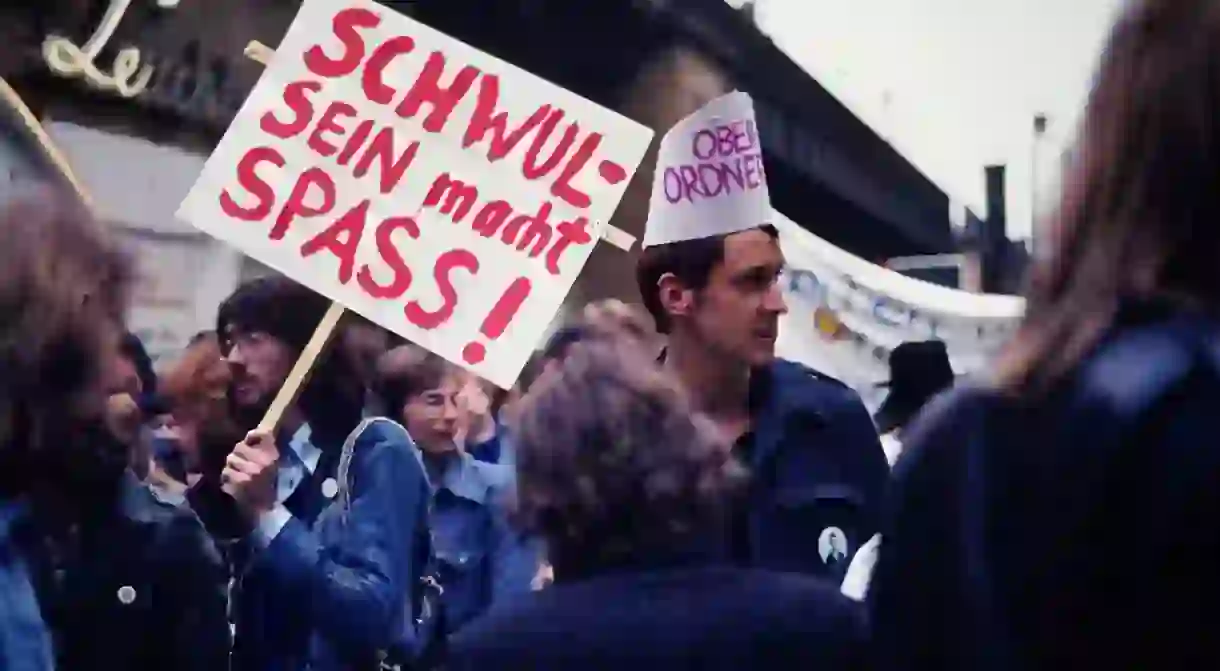80 Years of LGBTQ Cinema in Berlin

Since the 1930s, Berlin has helped push the boundaries of how sexuality is depicted on film. Culture Trip highlights some of the most important LGBTQ films to emerge from the German capital in the last 80 years.
The Culture of Pride celebrates the 50th anniversary of the Stonewall Riots.
‘Coming Out’ (1989)
Premiering on the night the Berlin Wall fell, on 9 November 1989, Coming Out was the first and only film about gay life produced in communist East Germany, according to the DEFA Film Library. Directed by Heiner Carow, it tells the story of a young teacher living in East Berlin who is struggling to come to terms with his sexuality.
‘My Wonderful West Berlin’ (2017)
The freedoms of modern Berlin are rooted in former West Berlin, and Mein wunderbares West-Berlin (the film’s German title) pays tribute to its status as a safe haven for queer people. It takes viewers on a journey through gay Berlin, through the suffering of the 1950s and ’60s, the re-emergence of a queer subculture, with bars, clubs and sexual freedom, in the 1970s, and the pioneering gay rights movement.

‘The Bitter Tears of Petra Von Kant’ (1972)
Released in 1972, Die bitteren Tränen der Petra von Kant was directed by prominent German filmmaker Rainer Werner Fassbinder. The film is based on the director’s own play, which employs an all-female cast and explores the shifting dynamics of the central character, Petra von Kant, and her relationships with other women.
‘Girls in Uniform’ (1931)
Released in 1931, Mädchen in Uniform holds a significant place in LGBTQ culture as the first explicitly lesbian film. It follows the life of a young girl who is sent to boarding school, where she struggles with loss as she falls in love with her young teacher. The film was directed by Leontine Sagan and is based on a play by Christa Winsloe. It was remade in 1958.

‘Where Are You Going, Habibi?’ (2015)
The comedy drama Wo willst du hin, Habibi? explores the unique friendship of a young, gay, Turkish man and a blond, blue-eyed German criminal. Directed by Tor Iben, it offers a fresh and relevant perspective on queer Berlin and the huge Turkish population that makes up the city.


‘Desire Will Set You Free’ (2015)
Filmed around Berlin’s nighttime haunts, Desire Will Set you Free deals with the role of the party scene in modern queer Berlin. It is the second feature from director Yony Leyser, and presents a culture of hedonistic debauchery. The cast is made of up people mostly playing themselves, which adds a documentary element to the film.


Pride 2019 marks the 50th anniversary of the Stonewall Riots in New York City and the beginnings of the international Pride movement. To celebrate, Culture Trip spotlights LGBTQ pioneers changing the landscape of love around the world. Welcome to The Culture of Pride.













